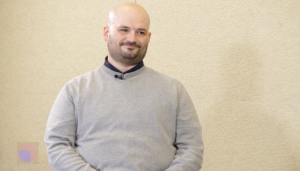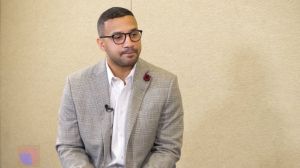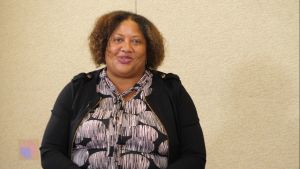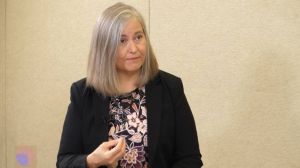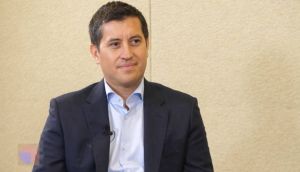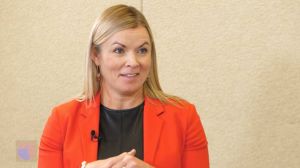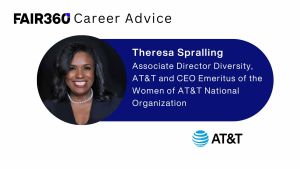Dianne Greene is currently the Division Vice President and General Manager of ADP’s new facility in Norfolk, Va., where she leads the joint delivery of business unit and function operational objectives, service innovation strategies, process standardization and continuous improvement for the entire “OneADP” site as it rapidly grows to over 2,200 associates.
Dianne has 26 years of service leadership experience including the creation, expansion and deployment of domestic and international service organizations.
Over her 12-year career at ADP, Dianne has held several leadership roles of increasing responsibility, including Vice President of Strategic Workforce Planning, Vice President of Client Migration Services, Vice President of Enablement, Client Relations Executive and Senior Director of GlobalView Client Service.
Shane Nelson: Why are diversity and inclusion important to you, professionally and personally?
Dianne Green: Diversity and inclusion are both very important to me because, from a professional standpoint, diverse backgrounds and experiences really lead to diverse thought and decision-making practices. If all of us have the same experiences in life, in general, and we follow the same path in terms of our decision making practices, then you’re going to end up with a lot of the same like minds and a lot of the same decisions. In today’s environment, where we have such a fast paced moving market, you need people to be able to have differences of opinions to reach the best solutions, the one most suitable for what you’re trying to achieve. From a professional standpoint, you need to have people with diverse backgrounds and experiences in order to be innovative and bring innovation and future development and creativity into the marketplace and work environment.
From a personal standpoint, I have a lot of friends who look like me. My family, generally, they all look like me. But how wonderful is it to have people who have different backgrounds, different ethnicities and different experiences that we can all learn from and share? And that helps us to develop on a personal level. So, for me, diversity and inclusion span not just the workplace, but also outside of the workplace where we’re having day-to-day interactions with each other.
Shane Nelson: When I first heard you speak at an EY event at Carnegie Hall, you told your story about dealing with microaggressions earlier in your career and having to overcome them. Can you tell us that story and give advice on how to successfully deal with people that want to derail you?
Dianne Green: Absolutely. I think this is something that probably comes up in just about everyone’s career, at some point. And, you know, some of the actions, some of the microaggressions, are more egregious than others. When I think about microaggressions, I always like to define it for people because not everyone knows the term. Microaggressions are those things people will do to nitpick you, sometimes small, or sometimes big, to get you off your path or, as you said, to derail you, distract you, make things difficult for you and to make your environment uncomfortable. It doesn’t come from a good place. It’s not a positive thing; it’s generally wrought with a lot of negativity, and it can sometimes have some malicious intent.
So I’ll share my story about what I consider the most egregious form of microaggressions that I’ve experienced in my entire career. The caveat is this was my approach to this particular one. My approach is not the silver bullet answer nor will it work for every situation, but I’m happy to share what worked for me.
I joined a team of nine white male leaders several years ago in my career. These leaders were all long tenured with deep-rooted relationships. Their wives knew each other, their kids knew each other; they had worked so long together that work life and home life merged to some extent. They had cookouts at each other’s homes in the summertime — and so, you get the picture.
When I accepted the role, I knew that I had equal, or higher, credentials than most of them on that team. What I didn’t know was that they had never worked with someone who looked like me or who had a strong and reputable career coming in. When I tell you their behavior was disturbing…they would mimic my accent when I spoke. I was born in Guyana, raised in Jamaica, and I’m very proud of my heritage. These men would mimic my accent, they would turn their backs in the swivel chair when I spoke, discredit my data in senior presentations and really tried to make it uncomfortable for me.
But, because I knew, and this is one of the things about me that I’m very firm on, I knew that I was enough, I knew that I belonged at that table, just as much as they did. I knew that I also made a very conscious decision to join the company. I also knew, because of those things, that it would never be my responsibility to help them sort through that behavior or their feelings toward me. These men did everything that they could to try to bring me down, to make it uncomfortable, and to make it unsettling for me to lead alongside them.
My response was to turn my focus away from the emotions of the situation and the professional immaturity and poor behavior and, instead, focus on the business goals at hand. I focused on crushing those goals, and I crushed them. I moved on to the next set of goals, crushed those and kept moving. Eventually, they realized that while they’d been distracted and caught up in their “feelings,” I was out there blazing through and making a name for myself and getting a lot of attention. They eventually got their act together and changed. However, I got the strength to blaze through by focusing my attention where it mattered most to me and to the organization.
Now, you know, some people may say, “Well, she just ignored the situation and didn’t address it directly,” and I’d argue that I addressed it very appropriately by making an impact where it mattered most and taking the high road. In other instances, you have to face micro aggression head on and say, “You know what, I see you and I see what you’re doing, let’s have a chat.” And sometimes, calling it out directly also lets them know how their actions are being received.
Shane Nelson: That was awesome. I love how you crushed those goals, crushed some more goals and kept it moving. Brilliant!
Next question. What advice would you give to high potential women, specifically women of color, in advancing their careers?
Dianne Green: I have four things that I think are tried and tested. I have personally tried and tested them myself and so I feel very confident that these are four good ones to at least get started with.
1. Be strategic about your brand. Build it early. I tell our new hires here in Norfolk — you start building your brand on day one, on your first day of hire. So build it early and do good work and be consistent in the delivery of that good work, and never be afraid to recheck, recalibrate and adjust as you advance. Because, in order to remain relevant in our fast changing work environment, to remain relevant with all of these generations, from baby boomers to millennials in the workplace right now, you have to recheck and you have to recalibrate. You have to be very strategic about your brand.
2. Find several mentors. You don’t need to have only one. Sometimes one person can’t be all encompassing and do everything for you in terms of a mentor/mentee relationship. I have two mentors at work: I have a spiritual mentor, and I have a family life mentor. Find people who can support you in a network or provide a supportive network for you. You should also be a mentor to at least one person. It is important, as high potential women of color who are advancing in our careers, that you must always look back. Give a helping hand to someone else. Help another woman or help another person build their career and allow them to learn from you. When you do that willingly, expecting nothing in return, the universe will always reward you in good form.
3. Build solid and lasting relationships inside and outside of your company. Career advancement comes in many different forms and having good relationships is a really great start. Be mindful of the relationships that you’re building.
4. Stay polished. Consider nonverbal cues that you project and consider the image that you want to leave with people, as you go through your day, as you go through your career. Make sure that your image is in alignment with that of your employer. What do I mean by that? I mean don’t show up for work looking like you’re going to or coming from the club. Unless, you know, you actually work at the club. Keep it polished and remember those nonverbal cues as you continue to progress.
Shane Nelson: You recently received a promotion where you were tapped to head up ADP’s new facility in Norfolk, Va. You had to relocate from New Jersey to Virginia. What advice would you give folks who are asked to relocate for work?
Dianne Green: This is a really good question, very near and dear to my heart. I’ve been living in Norfolk now for a whole month and the experience has been exciting. It has also been stressful. It has been a whole bunch of emotions all in one. The first thing I would say is do the examination of the relocation opportunity. Look at it for fit, your own personal fit, your career fit, where you want to go strategically in your career. Look at it in terms of runway — is this an opportunity that has some runway that may possibly set you up for something else? Is it an advancement or not? Is it a lateral move? I think you have to take a good examination of what relocating into the particular opportunity means to you on a personal level.
The next thing that I would say is look at what it means to your family, your closest loved ones, your friends, your support system, your network. If you have to uproot young children (I didn’t, but I had other considerations), what does that mean to those people close to you? I’m leaving family in New Jersey, I’m leaving a solid network and support system of friends and church members and previous employers and coworkers in New Jersey. What does that mean? What kind of disruption does that provide and what are the risks in taking that move?
You also have to examine the relocation package, meaning if you are getting some sort of support from your organization in this move, know and understand all the intricacies of that package. Know your dollars, know your taxes, know everything that you need to understand from a financial standpoint in terms of what this will mean to your finances.
So those are the three things:
1. The opportunity itself in terms of your fit, runway, advancement, promotability, or not.
2. The opportunity in terms of impact, disruption, and risk to your network, your family, friends and your support system.
3. The opportunity in terms of knowing your money. Understand what’s involved. Understand where you’re moving to, are there some inherent benefits maybe in moving from a high tax state to a lower tax state? What are the changes? Differences?
You don’t want to move and be completely surprised. Then, you marry all those things into your decision making to come up with the final outcome. For me, it’s been an amazing opportunity. It’s been the right opportunity, the timing was right, and so it all came together very, very well and so I am extremely happy to be in Norfolk. We’re practically starting a new life. We’re in a place where we really don’t know many people and so it’s like a fresh start at life. I’m very happy with it.


